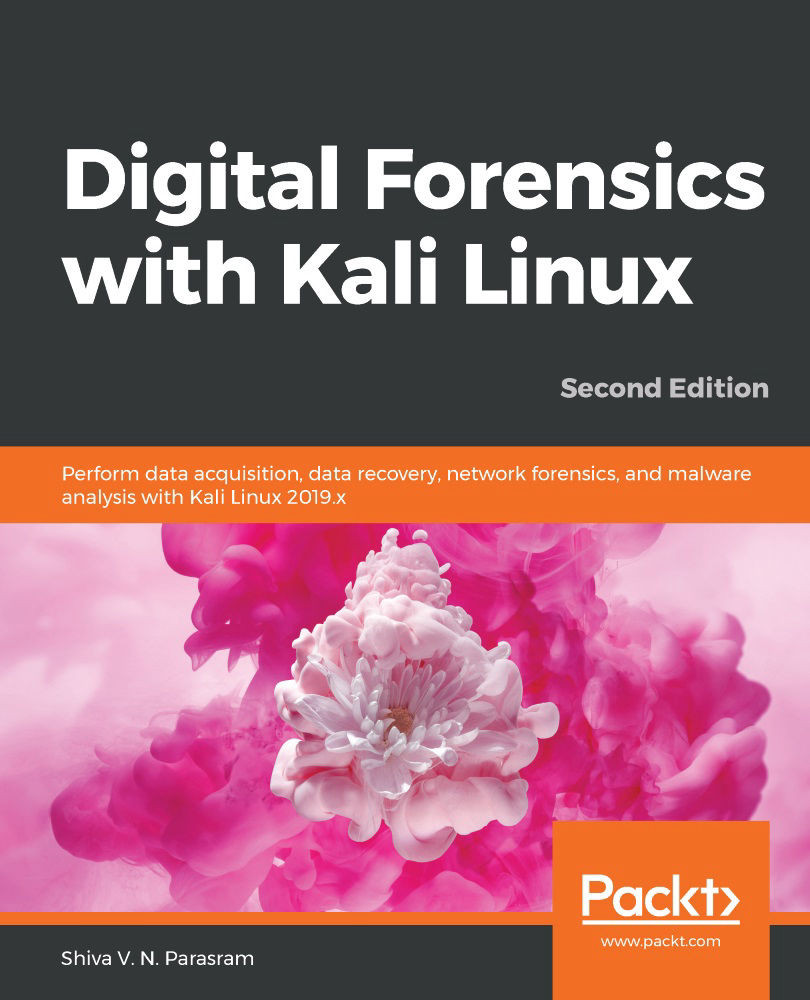-
Book Overview & Buying

-
Table Of Contents

Digital Forensics with Kali Linux - Second Edition
By :

Digital Forensics with Kali Linux
By:
Overview of this book
Kali Linux is a Linux-based distribution that's widely used for penetration testing and digital forensics. It has a wide range of tools to help for digital forensics investigations and incident response mechanisms.
This updated second edition of Digital Forensics with Kali Linux covers the latest version of Kali Linux and The Sleuth Kit. You'll get to grips with modern techniques for analysis, extraction, and reporting using advanced tools such as FTK Imager, hex editor, and Axiom. Updated to cover digital forensics basics and advancements in the world of modern forensics, this book will also delve into the domain of operating systems. Progressing through the chapters, you'll explore various formats for file storage, including secret hiding places unseen by the end user or even the operating system. The book will also show you how to create forensic images of data and maintain integrity using hashing tools. Finally, you'll cover advanced topics such as autopsies and acquiring investigation data from networks, operating system memory, and quantum cryptography.
By the end of this book, you'll have gained hands-on experience of implementing all the pillars of digital forensics: acquisition, extraction, analysis, and presentation, all using Kali Linux tools.
Table of Contents (17 chapters)
Preface
Section 1: Kali Linux – Not Just for Penetration Testing
 Free Chapter
Free Chapter
Chapter 1: Introduction to Digital Forensics
Chapter 2: Installing Kali Linux
Section 2: Forensic Fundamentals and Best Practices
Chapter 3: Understanding Filesystems and Storage Media
Chapter 4: Incident Response and Data Acquisition
Section 3: Forensic Tools in Kali Linux
Chapter 5: Evidence Acquisition and Preservation with dc3dd and Guymager
Chapter 6: File Recovery and Data Carving with foremost, Scalpel, and bulk_extractor
Chapter 7: Memory Forensics with Volatility
Chapter 8: Artifact Analysis
Section 4: Automated Digital Forensic Suites
Chapter 9: Autopsy
Chapter 10: Analysis with Xplico
Chapter 11: Network Analysis
Other Books You May Enjoy
